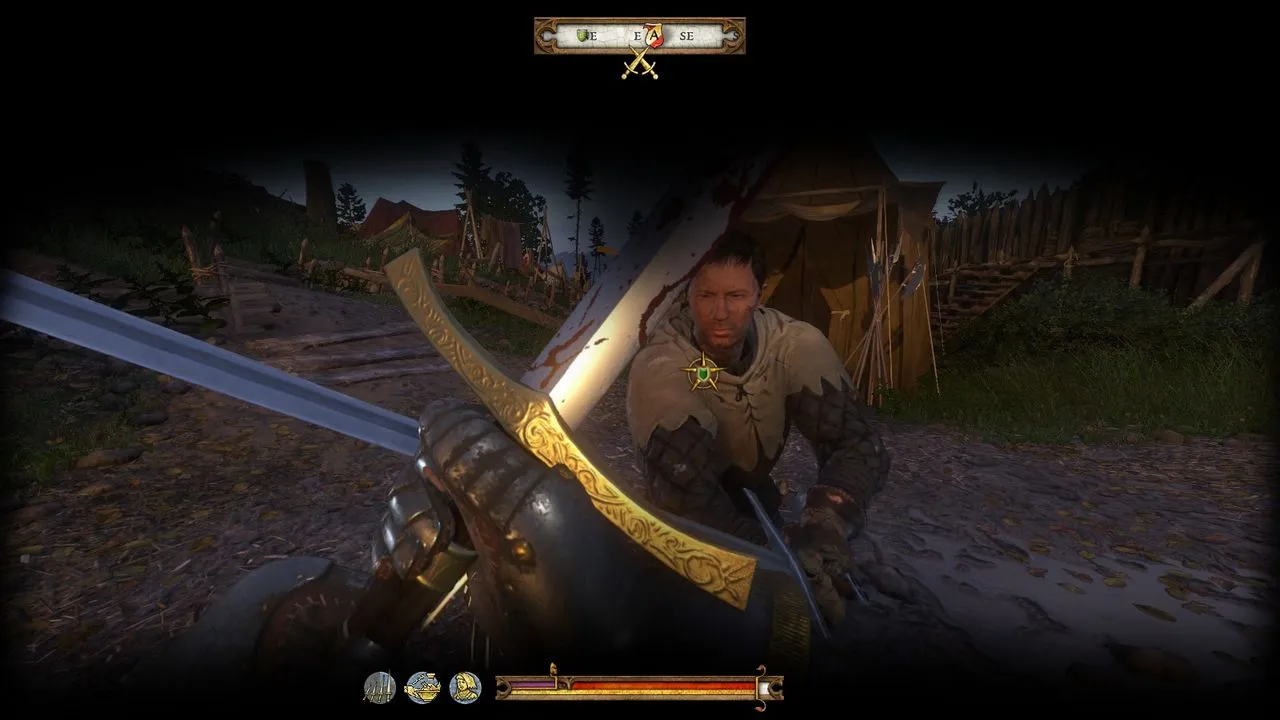
Kingdom Come: Deliverance: A Realistic Medieval RPG
Contents
The gaming world often romanticizes war, but Kingdom Come: Deliverance, released in 2014 by Warhorse Studios, offers a different perspective. Set in 15th-century Bohemia, this open-world RPG grounds itself in historical accuracy, aiming to depict medieval life vividly. While it stumbles in some areas, its unique approach and ambition are commendable.
A Knight’s Tale, Grounded in Reality
Even without prior knowledge of Bohemia (modern-day Czech Republic), Kingdom Come: Deliverance effectively conveys the essence of medieval society. Knights uphold honor, lords display varying degrees of benevolence or corruption, and betrayal lurks around every corner.
The story follows Henry, a blacksmith’s son from Skalitz, caught in the turmoil of a civil war sparked by the imprisonment of Emperor Wenceslaus IV. Henry is no grand hero, but a pawn in a larger political game, reflecting the realistic setting.
 Kingdom Come: Deliverance
Kingdom Come: Deliverance
The narrative unfolds in two parts: a main quest reminiscent of “The Name of The Rose” as Henry seeks his father’s stolen sword, and a collection of side stories offering glimpses into Bohemian life, customs, and social hierarchies. While not the first RPG to adopt this structure, the historical setting amplifies the impact of these interwoven narratives.
The game’s sharp writing and natural voice acting, combined with a surprisingly well-integrated sense of humor, elevate the storytelling. Despite the grim opening scene of Cuman raiders pillaging Skalitz, the game finds moments of levity, such as Henry drunkenly critiquing the Catholic Church. This humor provides a welcome contrast to the often-heavy historical and political themes.
 Kingdom Come: Deliverance
Kingdom Come: Deliverance
Exploring Bohemia
Beyond the narrative, Kingdom Come: Deliverance immerses players in a beautifully rendered world. From bustling villages connected by muddy paths to vibrant forests teeming with wildlife, the game’s environments are visually captivating. While not vast, Bohemia offers a sense of wonder and exploration.
Furthermore, the world operates under its own set of rules. NPCs follow daily routines, react to Henry’s attire, and engage in various activities, creating a dynamic and believable environment. This attention to detail, while sometimes predictable, surpasses even some offerings from Bethesda Game Studios.

The game’s mechanics reinforce this realism. Dirty clothes require washing, armor needs repairs, food spoils, and even sleep impacts the game’s progression. These systems, while initially complex, encourage players to truly inhabit Henry’s world.
From Pawn to Protagonist
Initially, Henry is indeed a “nobody.” However, through a complex system of skills encompassing combat, social interactions, and even literacy, players can shape his development. Whether a charismatic nobleman or a hardened warrior, the choice is yours.
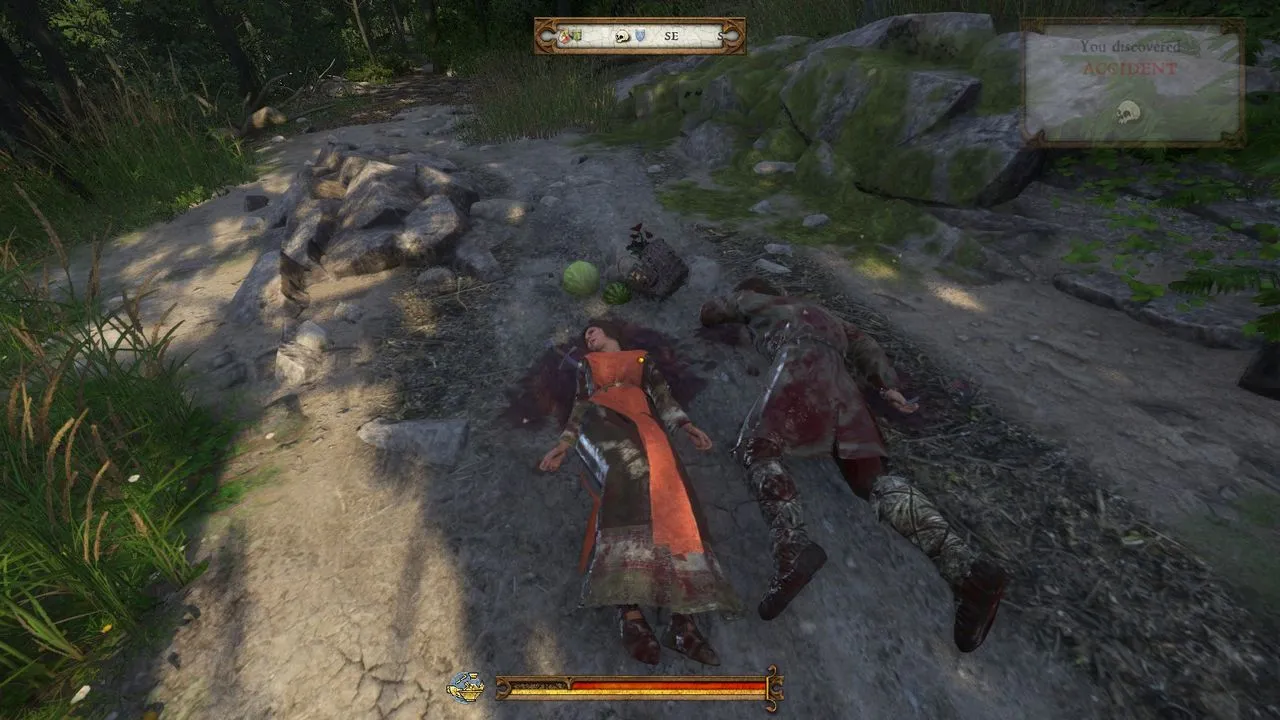
Layered clothing and armor systems affect combat prowess and stealth, while even seemingly mundane activities like eating and sleeping play a crucial role. This intricate web of interconnected systems enhances the immersive experience.
One standout feature is the alchemy system, accessible only after Henry learns to read. Players engage directly with the crafting process, using tools and following recipes to create potions. This interactive approach adds a layer of depth rarely seen in open-world RPGs.
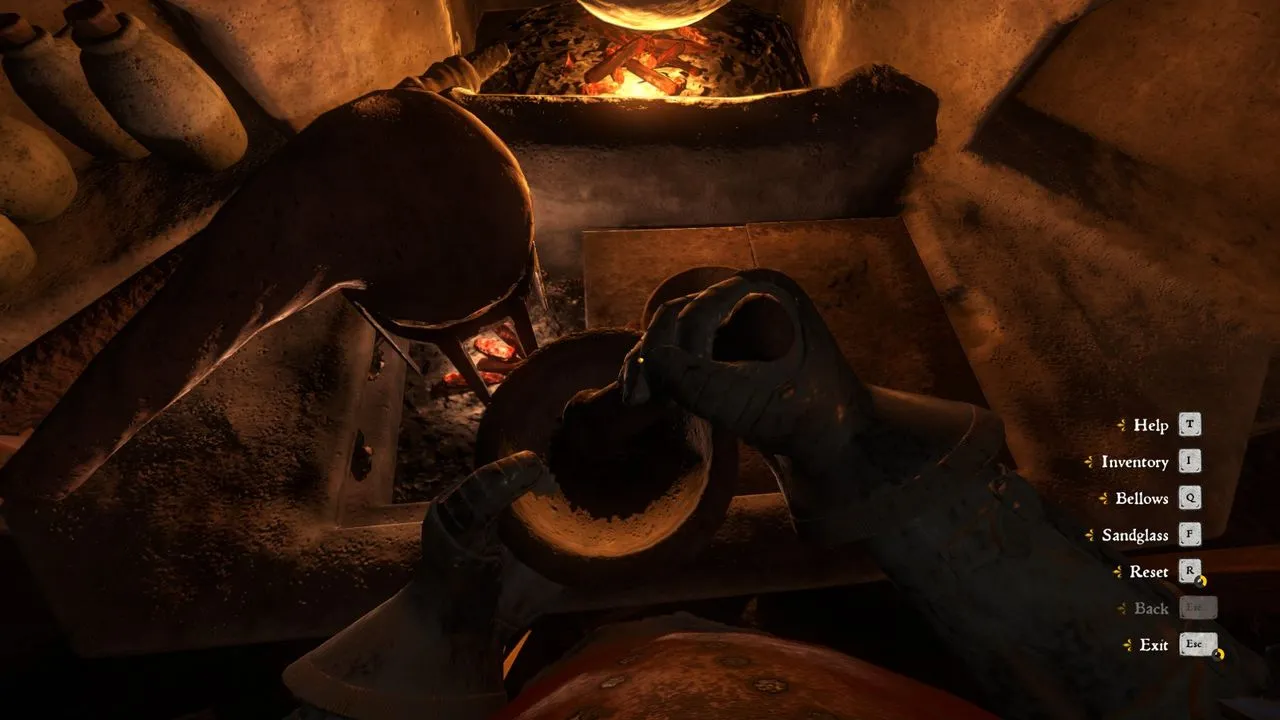
Combat, too, emphasizes realism, with a directional system similar to For Honor. While initially clunky, mastering the swordplay provides a satisfying sense of accomplishment. Archery, devoid of aiming aids, presents a unique challenge, making every shot a test of skill.
Stumbles Along the Way
Despite its ambition, Kingdom Come: Deliverance suffers from technical issues and design flaws, particularly towards the latter half. Combat becomes overly simplistic, with the powerful Master Strike trivializing encounters. The single-button blocking mechanic also feels unnecessarily limiting.
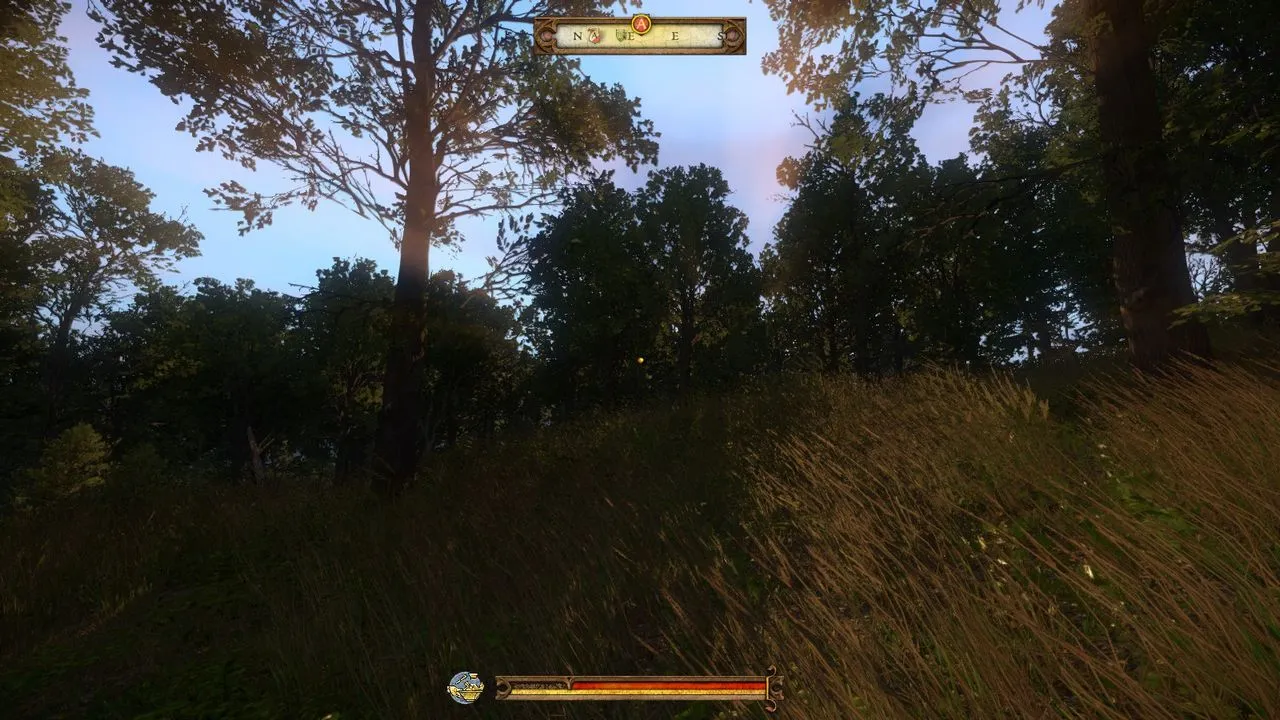
Several late-game quests feel tedious and padded, with objectives that offer little meaningful impact. A promising infiltration mission in a monastery is bogged down by frustrating mechanics and illogical AI.
Technical glitches, ranging from environmental issues to broken quest markers, plague the experience. The unusual save system, relying on sleep or specific story points, exacerbates these problems.

AI behavior also proves inconsistent. While NPCs exhibit detailed routines, their reactions to player actions often feel clunky and unresponsive, particularly in crowded environments. This inconsistency detracts from the overall immersion.
Finally, the game’s ending feels abrupt and unsatisfying, resorting to a predictable cliffhanger that hints at future content.
Conclusion
Kingdom Come: Deliverance is a flawed but ambitious RPG that attempts to portray medieval life with unprecedented realism. While technical issues and design inconsistencies detract from the experience, its compelling narrative, immersive world, and unique mechanics offer a refreshing departure from the typical fantasy RPG fare.
 Kingdom Come: Deliverance
Kingdom Come: Deliverance
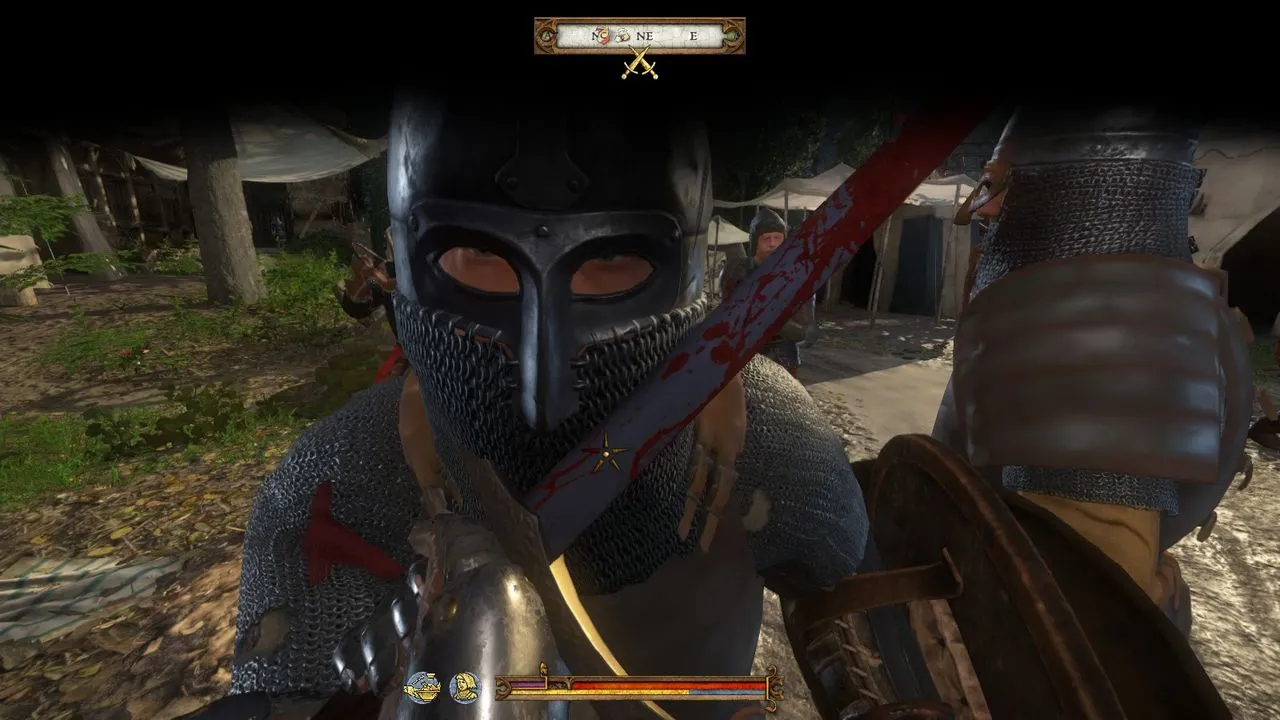



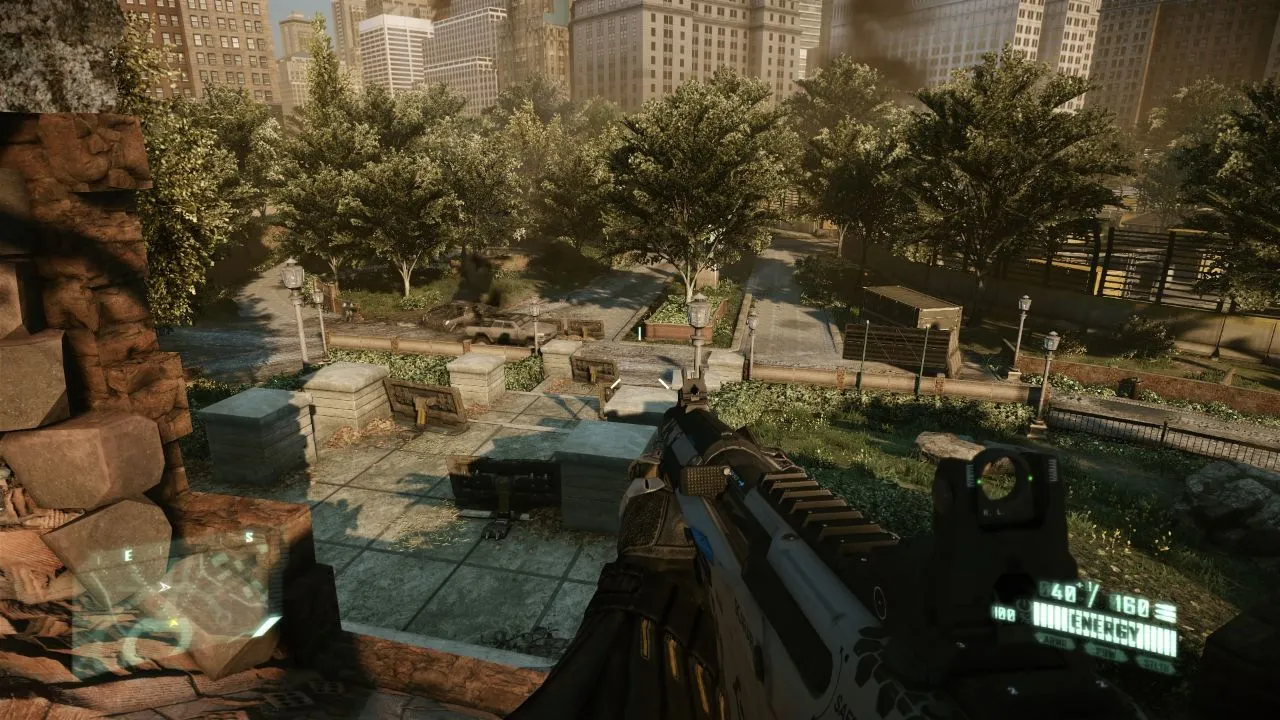

Comments (0)